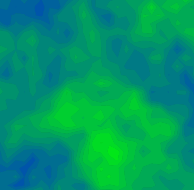PEST Course 2019
Workshop Model Calibration and Uncertainty Analysis Using PEST

Summary
PEST (Parameter ESTimation) is a general-purpose, model-independent, parameter estimation and model predictive uncertainty analysis package. It is the most advanced software readily available for calibration and predictive uncertainty analysis of groundwater, reservoir, surface water, and other models.
The workshop will provide attendees with the foundations of parameter estimation theory, an understanding of the sources of uncertainty in predictions made by numerical models, and experience in using PEST and PEST ++ to calibrate and analyze the uncertainties of groundwater flow and transport models, and surface water models, and to explore the uncertainties of predictions made by these models.
The program for each day is a combination of lectures and practical sessions (hands on exercises). With regard to the practical sessions, the content of these can (at least to some extent) be defined by the individual attendee.
Target audience
Practitioners from a wide range of backgrounds will benefit from this course, whether new to PEST or with previous PEST experience.
To get the most out of the course, attendees should have modelling experience, preferably in the groundwater or surface water disciplines. However the material presented on the afternoon of the first day will also benefit those who rely on models for decision-making purposes and need to have a better understanding of what models can and cannot achieve, but do not necessarily build them. The session will be open to the public for free.
Hands-on labs are GUI-independent and cover a variety of modelling disciplines, so that anyone interested in model calibration, parameter optimization, or the analysis of numerical model uncertainty can benefit from the couse. Experience in working at the command line level is an advantage in doing the workshops. Make sure to bring your laptop so that we can install the software and workshop on it.
Even if you are not a modeller you can still benefit from the course because the concepts explained in this course are vital to an understanding of the role of modelling in environmental management. They will also allow you tu understand what models can and cannot do, and to separate fact from fiction in promises made by those who sell expensive models
Program
- Day 1, morning:
- welcome
- models and decision support - what models can and cannot achieve
- revision of basic linear algebra and statistics
- Day 1, afternoon:
- parameter estimation for well-posed inverse problems – theory and practice
- introduction to PEST suite
- introcuction to PEST++ suite
- basic workshop on PEST
- Day 2, morning:
- highly parameterized inversion
- manual, subspace and Tikhonov regularisation
- the cost of uniqueness
- Day 2, afternoon:
- parameter estimation in groundwater modelling
- pilot points as a parameterization device
- SVD-assisted inversion
- workshop on calibrating a highly-parameterized model
- Day 3, morning:
- more on groundwater model calibration
- the need for creativity in formulating an objective function
- one-sided penalty functions
- surface water model calibration
- Day 3, afternoon:
- highly parameterized inversion in surface water and land-use modelling
- regionalization of surface water and land use parameters
- global optimizers available throuth the PEST and PEST++ suites – CMAES, SCE, DE, PSO
- continuation of workshop on highly parameterized inversion
- 4 p.m. Darcy lecture
- Day 4, morning:
- introduction to uncertainty analysis
- Monte Carlo methods
- linear uncertainty analysis
- assessment of data worth
- Bayes equation and enforcement of calibration constraints
- Day 4, afternoon:
- geostatistical methods
- enforcing calibration constraints where there are many parameters
- quasi linear methods
- Null space Monte Carlo
- workshop on linear and nonlinear uncertainty analysis
- Day 5, morning:
- calibration of defective models, theory and practice
- direct predictive hypothesis testing
- decision outcome optimization
- optimisation under uncertainty
- Day 5, afternoon:
- course participants discuss their own examples
- farewells
Administrative Information
Fees:
CHF 2000 for professionals and CHF 1000 for students
Places are limited please register quickly
Registration:
Date
September 9 - September 13, 2019
Place
Faculté des Sciences, Umimail
Rue Emile-Argand 11
Room: E326 (3rd floor)
Timetable: 9h00 - 17h00
Speaker
Dr. John Doherty, author of PEST and Darcy lecturer for 2019
Registration
Fees: CHF 2000 for professionnals, CHF 1000 for students
Free for PhD students of the postdoctoral program (Water Earth Systems)
Informations
Prof. Philip Brunner, CHYN - Center for Hydrogeology and Geothermics
philip.brunner@unine.ch


